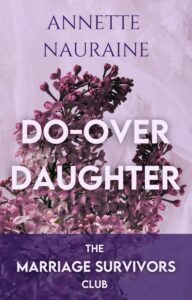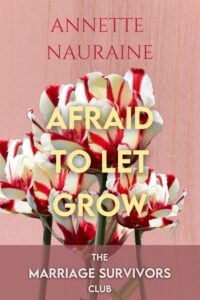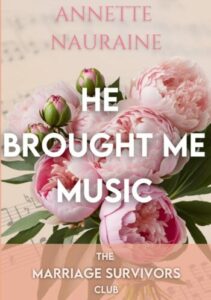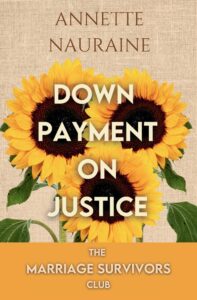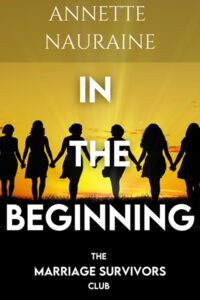Everyone Is Worthy: An Interview with Annette Nauraine
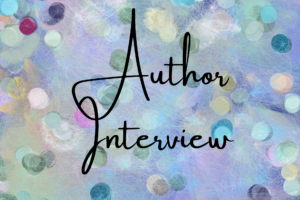 Every once in a while I put a request online for interview subjects. Author Annette Nauraine heeded the call, and though I’ve never met her in real life, I love how much energy comes across Annette’s emails, answers, and author photo. “Hi, I’m so happy to connect with you and your readers,” she said, and Annette, let me say this: I’m sending that same sentiment right back at you! Annette is another one of those folks who seems to be “all the things,” which always amazes, and quite frankly, inspires me. She loves to hear from readers, so if something from today’s interview resonates, be sure to contact Annette. And as she says on her website, “Do something kind today.”
Every once in a while I put a request online for interview subjects. Author Annette Nauraine heeded the call, and though I’ve never met her in real life, I love how much energy comes across Annette’s emails, answers, and author photo. “Hi, I’m so happy to connect with you and your readers,” she said, and Annette, let me say this: I’m sending that same sentiment right back at you! Annette is another one of those folks who seems to be “all the things,” which always amazes, and quite frankly, inspires me. She loves to hear from readers, so if something from today’s interview resonates, be sure to contact Annette. And as she says on her website, “Do something kind today.”
Welcome, Annette!
Christina: The tagline on your website is fantastic! It states, “Where Everyone Belongs.” How did you decide to include it and why?
Annette: That tagline comes from my conviction that everyone is worthy. I had a brown dad, I have a neurodivergent son, and since I was an opera singer, I have a ton of gay friends. At the risk of sounding religious, God didn’t make everyone the same, so why should we insist in our itty-bitty minds that everyone should be the same? Who are we to judge?
Okay, enough soapbox.
Christina: For what it’s worth, I agree with you! In this current political climate, do you have any tips for readers who want to be inclusive but might not know where to start?
Annette: Be brave. Volunteer where the marginalized exist. You’d be surprised how many people you think are “just like you” aren’t. Inclusivity doesn’t mean just LGBTQ+, ethnicity, race, or religion; it also means poor, disabled, people with mental illness, people struggling to connect, autistic, and people with Down. Many people have something to contribute if we only give them a chance and support them.
In my second book, Afraid to Let Grow, one of the characters is based on a guy named John Cronin. He owns JohnsCrazySocks.com. John has Down, but here he is, an entrepreneur who donates a lot of money to autism support, Special Olympics, and more. (P.S. Go over and buy some socks!)
Christina: You’ve mentioned that you’re “curious about the inner lives of people: what motivates, thrills, scares and drives them.” Where does this curiosity stem from, do you think? How do you use this curiosity to create your characters?
Annette: I grew up in a very psychological family and am also very interested in neurology. The brain is capable of amazing things—just read Oliver Sacks! When I come up with characters, first, I consider what they want, why they want it, and what their stumbling blocks are to get what they want. The best part is figuring out what they really need instead of what they want.
Christina: Let’s chat about The Marriage Survivors Club series. First off, the title of the series! Where did inspiration for both the title and the series come from? Did you always plan on writing a series, or did that happen organically?
Annette: I didn’t plan on a series, but as I worked on the characters, it started to coalesce for me. What’s better than a close-knit group of friends dragging one another into their best selves? They have been so much fun to write. Throw in cursing, praying, and romance and it’s a veritable soupçon of laughter and love. Their motto is: One for all and no bullshit for any. They all call one another on their bs and, like our real-life friends, they can see the best in us.
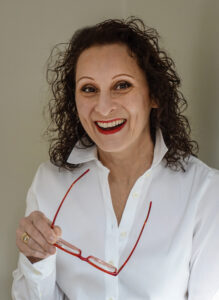
Christina: You have several books in the series, plus a prequel. Any plans for more?
Annette: Yes! Six, maybe seven. Books one and two are Do-Over Daughter and Afraid to Let Grow. Book three, He Brought Me Music, is about a little boy, a piano prodigy, who makes Hélène face her fears. Book four, Down Payment on Justice, about the horrible flaws in the criminal justice system and Bianca’s struggle to right a wrong. That book [released in March].
Christina: The first book, Do-Over Daughter, challenges the main character, Frankie, “to accept what love her mother can give before time runs out.” Mother-daughter relationships are complex, multi-layer, and different, depending on the duo. What about this relationship drew you to write about it?
Annette: I’m a mom, I guess that’s what drew me to write about it. Women, in particular, I think, have outsized expectations of what they expect from themselves as mothers, and also, if their needs weren’t met as children, they find it hard to let go of those needs. One of the themes in my books is forgiveness, not only for others but for ourselves. And neither of those is easy. Please note that Do-Over Daughter is the first in the series and it’s free on all platforms!
Christina: What message do you hope to send to mothers and daughters?
Annette: Sometimes, you’ll want to strangle each other. It’s not a pleasant feeling, but it’s universal. I think the relationship between mothers and daughters can be especially fraught. Forgive and accept the love the other can give, even if it hurts not to have the kind we want. We’re all doing our best. Nobody sets out to be a terrible mother.
Christina: The second book, Afraid to Let Grow, asks where the main character, Olivia, “can conquer her fears and let her children grow?” What a challenge for most parents! Why choose this as a topic, and did you learn anything about your own parenting as you wrote the book?
Annette: I chose this topic because being afraid for our kids is ubiquitous. Olivia is a little over the top; sometimes, so are we. The desire to give our kids everything they need is universal, despite race, religion, everything! But kids come hardwired to some extent, and you can only do what you can. You only have so many hours in the day. The neurological basis of learning is to try to do something that is just outside of your abilities. That way, the brain builds new neurons. Same with kids. A little struggle is a good thing.
Christina: Your bio states, “I love reading, making up stories, gardening, hiking, walking, dinner with friends, neuroscience, reading historical fiction, eating, not necessarily in that order.” The one that stood out to me (I’m a trained scientist) is your love of neuroscience, and you mentioned the brain earlier. Why neuroscience? Did you ever consider becoming a neuroscientist? In a parallel universe, do you think you have?
Annette: The brain is a fantastic organ. Think of what it can pull out of thin air: symphonies, the theory of relativity, books. It’s the largest and most complex in the human body. It’s only with the advent of FMRI we have been able to see what is happening in the brain. I have always loved medicine, and had I been able to do math and science, I would have studied it.
Christina: Let’s go back to another topic you mentioned—music, in particular, opera. How long did you sing opera? Can you give readers a sense of what opera training entails, and why are you now “a recovering opera singer?” Also, do you have a favorite opera?
Annette: I sang opera for way too long. I should have thrown in the towel and pursued something else. But c’est la vie!
Being an opera singer involves learning to speak or at least sing in Italian, French, German, British English, Spanish, and, in some cases, Russian. It takes hours of practice, good teachers, mentors, and a lot of money. George Bernard Shaw said the only thing that is more expensive than opera is war. Aspiring to be an opera singer is like trying to land a 747 on the head of a pin. The number of singers who can make a living at it is minuscule. Writing is hard, too, but at least there’s a delete key.
Christina: What’s next for you?
Annette: I still have to finish Carolina’s and Flicka’s stories, that’s books five and six. I may write a book for Father Gabriel, but I’m not sure yet.
Also, my family is moving from CT to NC. We’re both scared and excited.
Annette can be found in multiple places!
Website: https://annettenauraine.com/
Instagram: @anauraine
Facebook: @annettenauraineauthor
Goodreads: @Annette_Nauraine
Thanks to Annette for agreeing to this interview! Feel to leave a comment!

